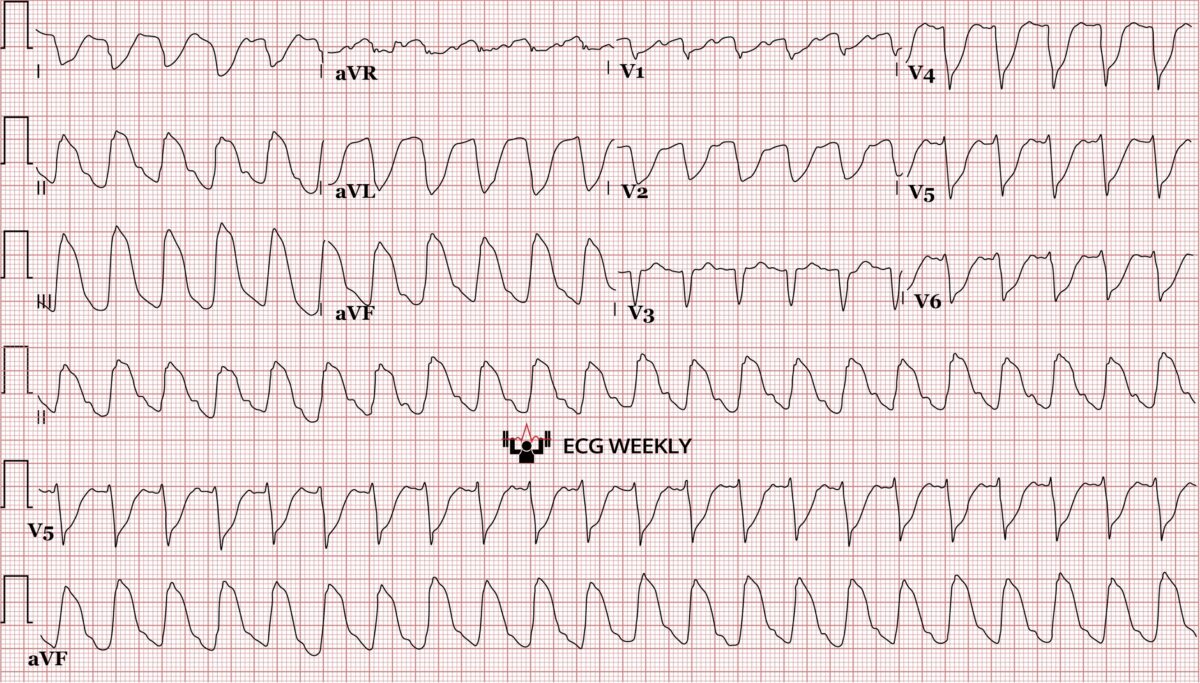Not All Wide Complex Tachycardias Are What They Seem
ECG Weekly Workout with Dr. Amal Mattu
HPI
A 40-year-old man presents with chest discomfort and shortness of breath. He’s ashen, diaphoretic, and hypotensive at 90/45. The ECG monitor shows a wide-complex regular tachycardia at 135 bpm concerning for ventricular tachycardia. Your team prepares for cardioversion, while you review the following ECG obtained on arrival:
Before watching this week’s workout, review the ECG carefully and consider:
-
- Would you cardiovert this or is there a single lead that might completely flip your diagnosis?
- Can massive ST elevation mimic ventricular tachycardia?
- Why do some STEMI patients become tachycardic, and what does that really mean?
- Would you cardiovert this or is there a single lead that might completely flip your diagnosis?



